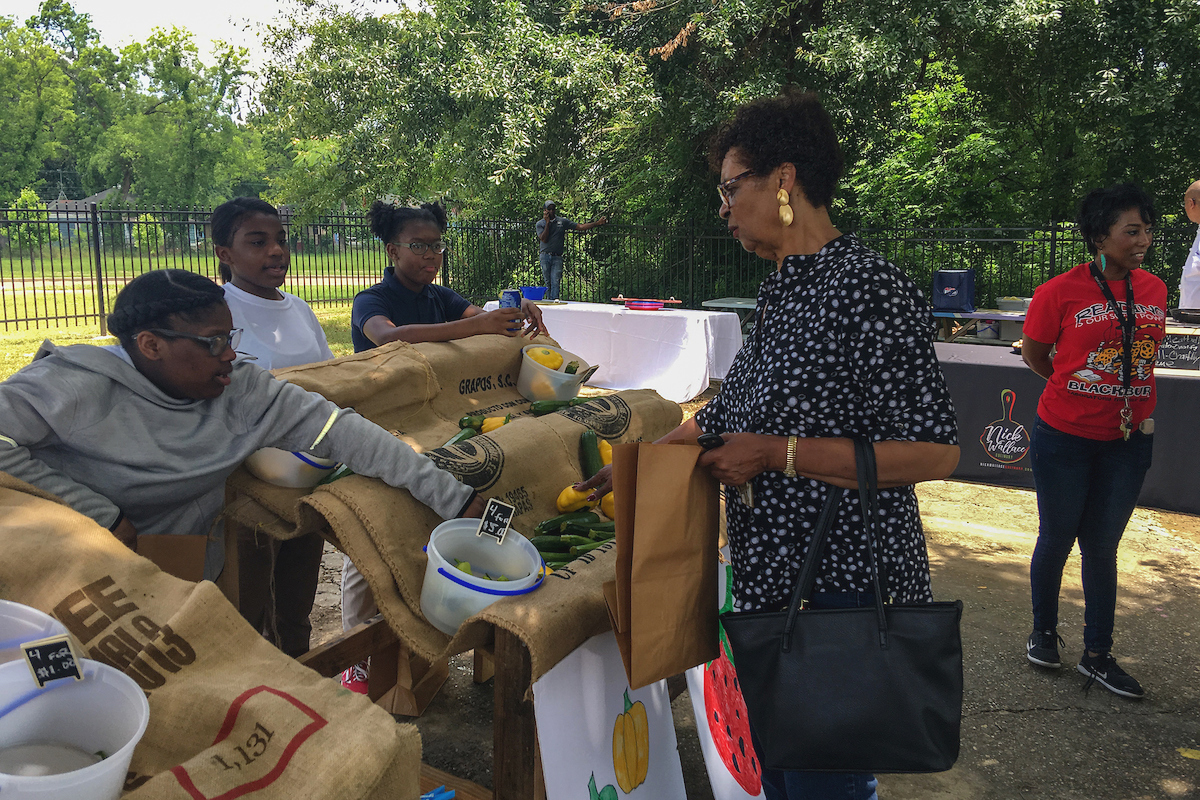During the spring, Blackburn Middle School students plant squash, peppers, onions and other crops in the half-acre garden near their Jackson, Miss., school, but in autumn the garden is full of mustard and collard greens, which they plant in October. When the greens are ripe and fully grown, students get on their knees to harvest the greens. They then prepare those greens in a cookoff competition each December.
“They go into the gym. They have their moms and their grandparents with them, and they spend all morning cooking a pot of greens, and then we have celebrity judges … come in and judge who has the best pot of greens,” Heather Denne told the Mississippi Free Press in a May 18, 2022, interview.

Twelve contestants participated in last year’s competition, and no pot of greens tasted the same, Denne said. Some people put okra in their greens, some added tomatoes, and some used sugar, to list a few examples.
“It smells amazing … but then when you get to taste the food, it tastes amazing as well,” Denne described.
“(The cookoff) is really bridging that generational divide and showing young folks that they can work with their parents and grandparents to cook a pot of greens with love,” she added. “And they grew the greens. That’s one of my favorite events that we host every year.”
Heather Denne and Khaliya Ervin are the minds behind the Learning Garden, a collaboration between Jackson State University and Blackburn Middle School that started five years ago. The community had made requests for a garden in the area, and the university happened to own a half-acre lot in close proximity to the middle school, Denne said.
The pair oversee the entire project, writing grants for the garden, putting on events, and ensuring that students coordinate to plant and water the garden.
“It’s been an operation since that time, but of course because of COVID, a lot of programmatic functions were shut down for the past couple of years,” Denne said. “So we’re really excited that now we’re able to have in-person events and the student-led farmers market (on May 20).”
The farmers will be held from noon to 2 p.m. on Friday, May 20.
‘Toiling the Soil’
Patty Patterson lives in the Eastview community in West Jackson, and she—along with some of her neighbors—turned an empty lot in the neighborhood into a community garden. She connected with Heather Denne, the director of community engagement at Jackson State University, and learned that Jackson State was working on its own community garden project.
Denne came to see the garden, Patterson said. “Everybody thought it was going to be a good thing that we kind of keep this up, so we were already looking at the land where the (Learning) Garden is,” Patterson told the Mississippi Free Press.
Patterson decided to volunteer for the project. Once the university secured the space, Patterson, the school, community leaders and neighbors planned out the Learning Garden. Farmers came out to help build the garden, which they completed in one day on Martin Luther King Jr.’s birthday in 2017, she said.

“We built raised beds—I think it’s like eight raised beds in there—and that was hand built,” Patterson described. “We put the soil in. We even laid out the shed, and eventually the kids came along and painted everything.”
Before the students came in, they began planting in March of that year, starting with squash, tomatoes and other crops that they knew would grow.
“We already got it started because we had to present this to public schools that this is something we can do in conjunction (with) learning as well,” Patterson said.
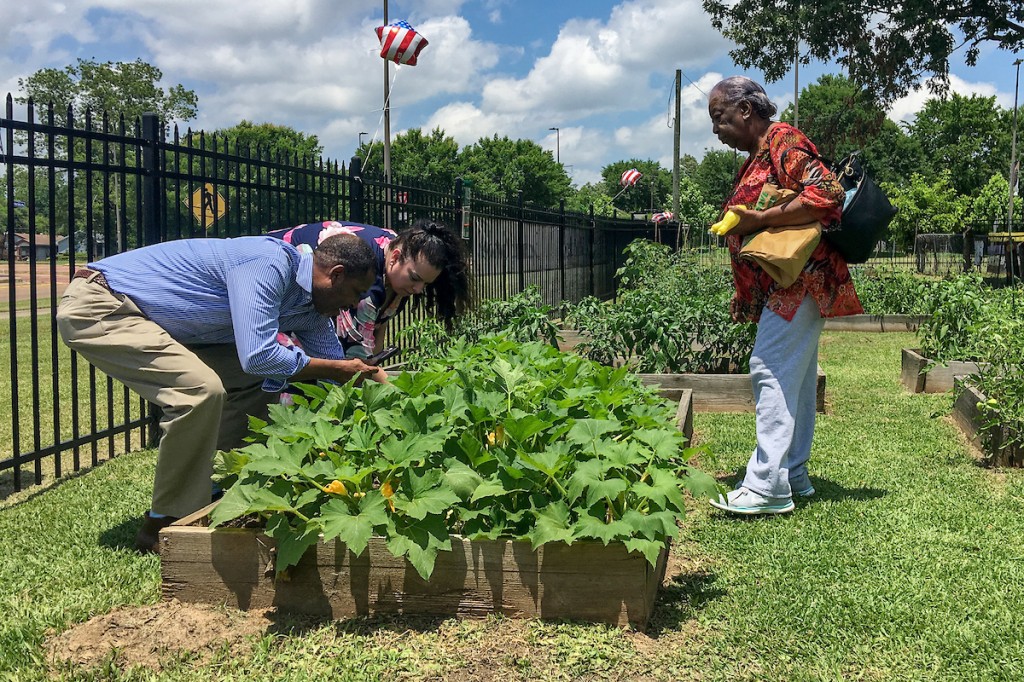
Participants plant in the garden twice a year, one time in the spring and one time in the fall. During the spring planting, local farmer Timothy White and his crew, JSU volunteers, and Blackburn students are responsible for the garden, she said.
“They actually toiled the soil to do it, and they keep the soil moist. They bring out the water because we don’t have the irrigation system, yet, so they’re responsible for watering the garden,” Patterson explained. “We taught them how to weed out the weeds to keep the weeds from sucking up all the nutrients from the food.”
Khaliya Ervin, an administrative assistant in JSU’s Office of Community Engagement, said she can see how happy kids are to get outside the classroom and learn how to plant and that they are more excited to be around their peers and show their teachers what they have learned.
“If they found a worm, they were happy to find a worm,” Ervin said.
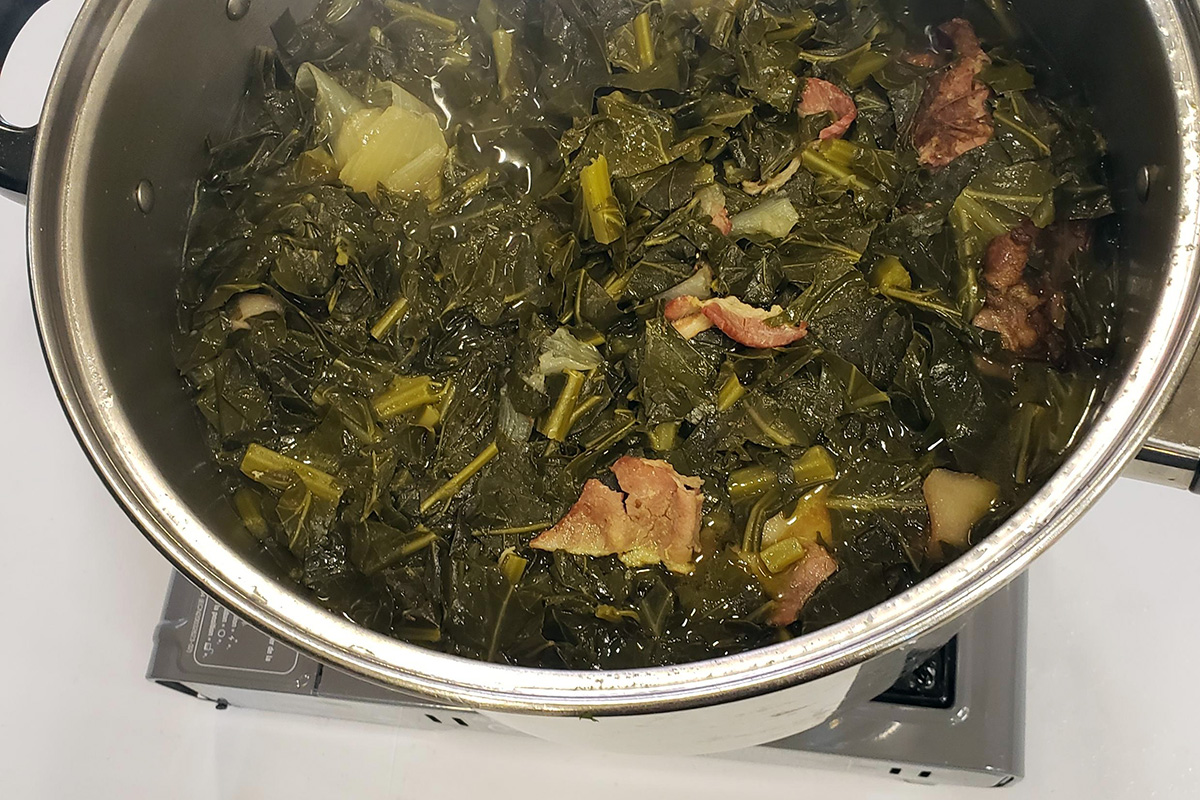
Denne said teachers have also noted that students with ADHD or ADD appear to have better reactions in the classroom when they know they are going to the garden or when they are coming from the garden.
“It’s awesome to see their eyes light up,” Patterson said. “They could say we did this, and they can actually eat a tomato right out the garden. It’s amazing to them to see something grow that they had a hand in.”
Patterson also teaches Blackburn students about the entrepreneurial side of farming. Prior to her phone interview with the Mississippi Free Press, she had just taught a class where 15 students participated in a mock farmers market using real produce, money and prices that were comparable to the prices in an actual grocery store, she explained.
“They got a chance to buy and sell,” Patterson said. “They had a person that ran the market, someone to bag the groceries and they had customers. I let them do a rotation of customers, and they all took part in making sure that the money was counted correctly and given back correctly.”
‘Student-Led Farmers Market’
In 2019, Blackburn Middle School students hosted their first student-led farmers market, an idea that the students came up with along with the collard greens cookoff. The first market met success, with students selling out of their produce within an hour and making $600, money they got to keep, Denne said.
“Whoever wants to sell and participate in the garden, we really want the money to flow back into the students’ hands,” she said. “That’s kind of a strategy for us because it’s an incentive for the students to want to participate, but also seeing like, OK, if I’m going to sell these vegetables then I can make some money.’”

The market also provides a space for the students to use their mathematical skills when counting money and change, transferring skills they learned in the classroom to real-life situations, Denne said.
On Friday, May 20, students are selling bell peppers, squash, parsley and banana peppers grown from the Learning Garden, as well as produce from Cindy Ayers’ Footprint Farms, during the afternoon. Due to the size of the Learning Garden and how quickly produce sold out for the first market, Denne said they have enlisted Ayers to bring in more produce like greens and strawberries.
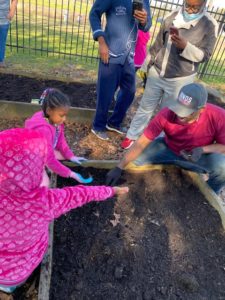
“We’re bringing in a chef on that day, so they’re going to be grilling vegetables, and we’re also bringing in a neighborhood lady who jars preservatives,” Denne added. “She’s going to show the community how to preserve beets on that day in these little jars.”
Denne said the garden costs between $5,000 to $10,000 a year to maintain, including any events they host like the collard green cookoff and farmers market. For this year’s market, Central Mississippi Health Services, a local clinic on Winter Street, is helping to sponsor the event, which offsets some of the costs.
“They’re trying to reach the same goal in terms of their population and their elderly folks,” Denne said. “And so having the elderly come out, who will primarily be the ones that come buy the vegetables from the young folks, helping them to learn about different ways to cook their food more healthy and just buy fresh produce is a way to help mitigate some of those illnesses that they see in their clinic.”
Denne said they want to support their students and make sure they have all the resources they need, so if they want to do something, money is a factor that stops them.
“We just try to bring in those resources, so the students really can get a full feeling for everything that’s out there and what’s possible that they may not think is possible given they’re in an urban area,” Denne said.
‘We’re Resilient’
Heather Denne said that the Learning Garden has helped with equity in the community and that when people drive by and see the garden, they can feel a sense of pride and community, she has been told.
“Oftentimes, when we have excess produce, we’ll just give that out to the neighbors that’s on that street or to the elderly folks in the community,” she said.
“That’s what we initially set out to do was just unify and … it has transformed into this space where the community, Blackburn Middle School, Jackson State and the stakeholders at large come together and really celebrate the growing of vegetables.”
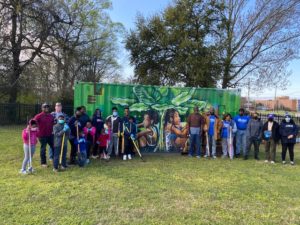
Khaliya Ervin said she is happy to see the middle schoolers engaging in outdoor activities and that the garden also opened her eyes to how all that the local community needs.
“We need more gardens like this, more organizations like ourselves that get out with the community and try to get young people out of the house to actually do something that would be good for themselves and for their community,” Ervin said.
Denne said they would love to expand this project across other schools in their community like Provine High School, Jim Hill High School or Isabella Elementary School, but expansion efforts will require resources and planning.
“If we have those partners that’s willing to give us funds to make it happen, we definitely want to do that and we want to provide a more educational base and curriculum to the students at Blackburn with the Learning Garden,” Denne said.
Torsheta Jackson reported in April the Mississippi Free Press about a school agricultural program started at Wingfield High School in South Jackson as a potential solution for community hunger.
Sixty-five percent of the capital city is considered a food desert, a term that refers to areas that have limited access to affordable and nutritious food. Statistics show that Mississippi is the most food-insecure state in the country, Fertile Ground reports.
Denne said the garden demonstrates to students that they can grow their own produce and that the process can be simple if they put a little effort behind it.
“Our hope is that they’ll be able to take this either back to their home and start their own garden or that when they get older, they want to do a garden as a part of a business where they can actually sell the vegetables,” she said.
Torsheta Jackson reported in April the Mississippi Free Press about a school agricultural program started at Wingfield High School in South Jackson as a potential solution for community hunger.
Sixty-five percent of the capital city is considered a food desert, a term that refers to areas that have limited access to affordable and nutritious food. Statistics show that Mississippi is the most food-insecure state in the country, Fertile Ground reports.
Denne said the garden demonstrates to students that they can grow their own produce and that the process can be simple if they put a little effort behind it.
“Our hope is that they’ll be able to take this either back to their home and start their own garden or that when they get older, they want to do a garden as a part of a business where they can actually sell the vegetables,” she said.
Patty Patterson is happy to see the once-vacant lot no longer lying dormant and said it feels good to know the community has come together to make a difference. They hope to do a lot more, she added.
“Pandemic did throw us for a loop, but we can get back on board. We’re just resilient. We know how to survive no matter what. We just hope this garden keeps one child from going astray,” Patterson expressed.
The JSU/Blackburn MIddle School Student-led Farmers Market will take place Friday, May 20, from noon to 2 p.m. at 1311 W. Pearl St. The market is cash-only. To learn more about the Learning Garden and other projects in the west Jackson area, visit West Jackson’s blog.

